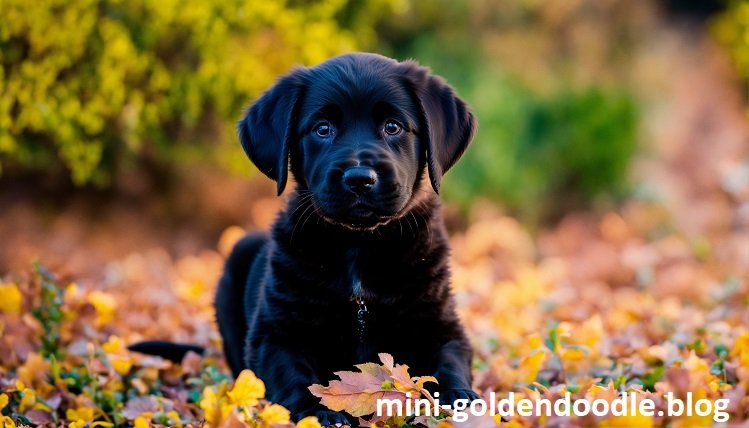Introduction
For any dog lover, black lab puppy getting a black Labrador Retriever puppy is a thrilling and fulfilling experience. As one of the most well-liked dog breeds worldwide, black labs are renowned for their intelligent nature, limitless energy, and kind disposition. Whether you’re thinking about bringing a black lab puppy into your house or you’ve already done so, this in-depth guide will provide you all the knowledge you need to make sure your new pet has a happy and healthy life.
History and Background of Black Labs
A subgroup of the Labrador Retriever breed, black labs have a long history dating back to Newfoundland, Canada. These dogs, who were originally trained to help fisherman, were highly valued for their kind mouths and powerful swimming prowess, which made them indispensable for helping with water rescues and fishing net retrievals. Their sturdy frame and water-resistant coat are probably due to their ancestors, the St. John’s Water Dog.
Physical Characteristics of Black Labs
A sleek, black coat that might be glossy jet black or a softer charcoal tint makes Black Labs easy to identify. Their wide head, powerful frame, and expressive eyes all contribute to their intelligent and kind demeanor. They are excellent swimmers, able to move easily over both land and water with to their strong, webbed feet and otter-like tail. Because they were raised as outdoor working dogs, their dense, short coat protects them from the cold and endures a variety of weather conditions.
Personality Traits and Temperament
Black Labs are distinguished by their devotion, affection, and kind nature. They are well-known for their gregarious and extroverted personality. They are wonderful family pets since they are very gregarious canines that enjoy human company and are especially kind to kids. They are very trainable because to their intellect and will to please; they do well in obedience classes and take pleasure in engaging in mentally and physically demanding activities. Additionally well-known for their lively and active disposition, Black Labs frequently carry into maturity the joy and exuberance of a puppy.
Basic Needs
A black lab puppy’s fundamental needs must be carefully considered before bringing them home to ensure a seamless transition and healthy development. A warm and secure resting space, puppy food that is suitable for their size and age, and constant access to clean water are all part of creating a pleasant and secure environment. Their general health and well-being depend on vaccines, parasite prevention, and routine veterinary examinations.
Training and Obedience
A gratifying task, training a black lab puppy calls for persistence, patience, and positive reinforcement methods. Establishing foundational obedience cues such as sit, remain, and come prepares the dog for more difficult training exercises. Treats, compliments, and toys are examples of rewards that can be used to promote desired behaviors and build a closer link between owner and puppy. In addition to helping with housebreaking, crate training gives the puppy a secure haven when left alone.
Exercise and Activity Requirements
Black Labs are active canines that like mental and physical challenges. Giving children lots of opportunities to exercise—like play dates, daily runs, or walks—helps them get rid of extra energy and maintains their physical fitness. Including games like retrieving, swimming, or agility training allows them to exercise their natural instincts and improves their general wellbeing.
Health Considerations for Black Labs
Black Labs are susceptible to various health issues, just like any other breed, therefore owners need to be proactive in monitoring their dog’s health. Regular veterinary treatment, such as yearly examinations and shots, aids in the early detection and prevention of ailments. Hip dysplasia, a genetic disorder affecting the hip joints that can cause mobility problems if left untreated, is a common health concern. To avoid discomfort,
Feeding Your Black Lab Puppy
A black Lab puppy’s growth and development depend heavily on proper diet. Selecting premium puppy food designed for large breed puppies contributes to their fast development and gives them the nutrition they need to build strong bones and muscles. Regular feeding schedules should be followed, with portion sizes modified in accordance with the animals’ size, age, and degree of activity.
Socialization and Interaction
Raising a black lab puppy that is confident and amiable toward people and other animals requires socialization. Early exposure to a variety of settings, sounds, sights, and experiences fosters resilience in children and lessens the chance that they would become fearful or aggressive as adults. Good interactions with kids, grown-ups, other dogs,
Grooming Your Black Lab black lab puppy
Regular grooming will guarantee that your black lab’s coat and general hygiene stay in excellent shape. Weekly brushing helps to avoid matting and eliminate loose hair from their short, thick coat. A mild dog shampoo that maintains their natural oils and keeps their coat looking clean and glossy should be used when giving them baths as needed. Regular nail trims encourage good foot structure and avoid irritation and overgrowth.
Conclusion
Bringing a black lab puppy home is a thrilling adventure that offers friendship, love, and education. Knowing your pet’s background, distinctive traits, and particular care requirements will enable you to give them the best life possible. With a focus on health, training, and basic care, this guide will help you raise a happy, healthy black lab puppy that will provide years of joy and enrichment to your life. Whether you’re an experienced enthusiast or a first-time owner, you’re guaranteed to have a lifelong, joyful, and devoted attachment with your black Lab puppy.
FAQ
Are black Labs good family pets?
Yes, black labs are great family dogs and kid friends because of their calm and amiable disposition.
How much exercise do black Lab puppies need?
Black Lab puppies need to exercise for at least an hour every day to maintain their mental and physical stimulation.

